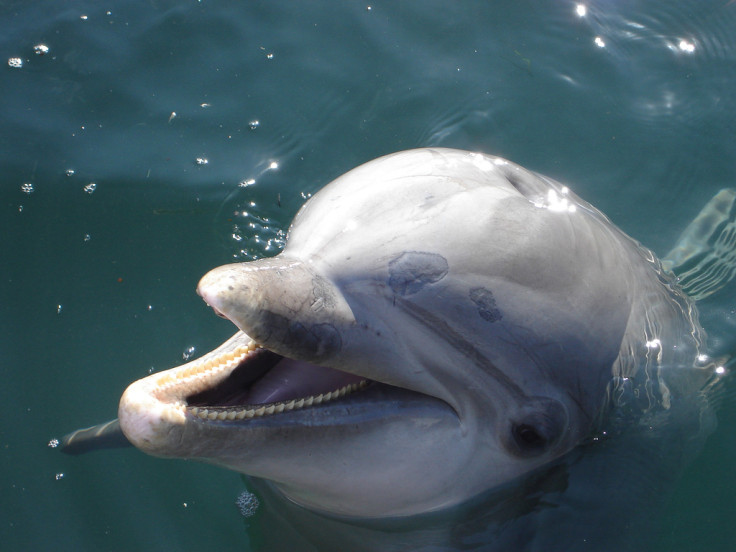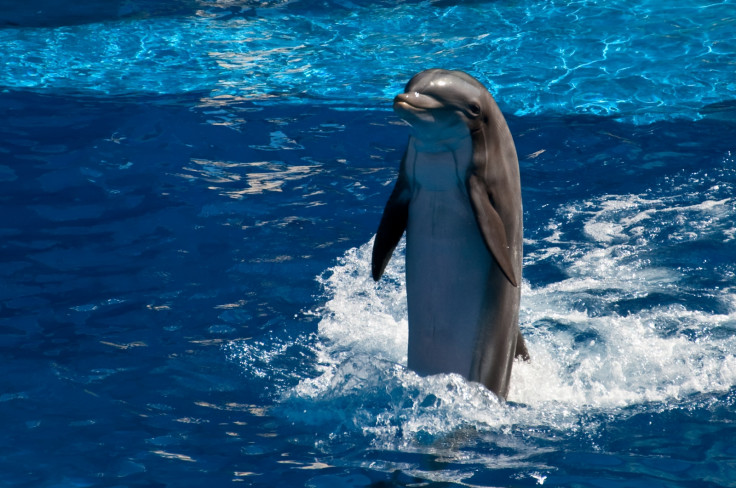Dolphins Squeal with Delight Because They Are Happy, Study Finds

Dolphins squeal with delight when they are rewarded – not because they want to tell others they have found food, but because they are really happy, experts have found.
Both dolphins and whales do 'victory squeals' (VS) when they are rewarded, named so because they remind humans of a child's cry of delight.
Published in the Journal of Experimental Biology, dolphin expert Sam Ridgway, from the National Marine Mammal Foundation, analysed the time delay between dolphins and whales getting a reward and their squeals – also known as echolocating.
"Like bats, echolocating cetaceans produce feeding buzzes as they approach and catch prey. Unlike bats, cetaceans continue their feeding buzzes after prey capture and the after portion is what we call the VS. Prior to training (or conditioning), the VS comes after the fish reward; with repeated trials it moves to before the reward," the authors wrote.

In six different experiments, experts looked at when the squealing came. At first it was always after the fish reward. After training, all the animals – 12 dolphins and two whales – squealed when they knew they were about to receive a fish reward.
The researchers believe this delay is the same delay between a pleasant experience and a release of dopamine in the brain – which is involved in the reward system – meaning dolphins and whales are experiencing pleasure rather than signalling to others that they have found food.
Concluding, the authors said: "This forward-shifted food call that we have dubbed a VS is the best cetacean example of an acoustic signal of food reward expectation that was predicted for rats many years ago.
"Dolphins, belugas and many other cetaceans are highly vocal animals. Therefore, the character, timing and context of their sounds may reveal more about their emotional states and about the function of their sounds in communication."
© Copyright IBTimes 2024. All rights reserved.






